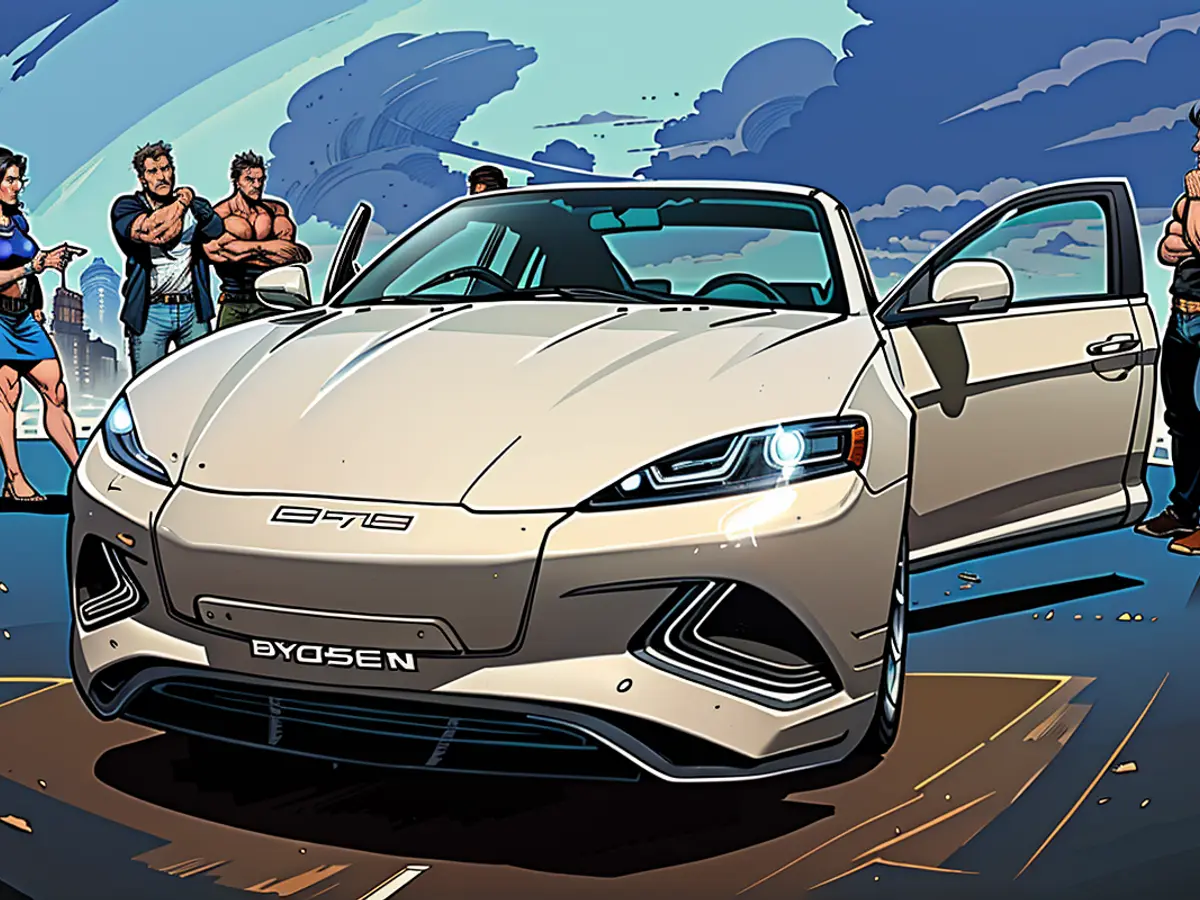Why the EU's punitive tariffs are leaving BYD completely cold
Despite the announced European tariffs on Chinese-made E-Autos from BYD, the industry leader is pushing forward with its expansion into the European market. "BYD can and will shoulder the tariffs without any problems," says automotive expert Dudenhoeffer.
Europe has been struggling to create facts regarding tariffs on Chinese E-Autos. So far, only a saber-rattling has emerged, barely causing anxiety for Chinese automakers. The EU Commission issued a transitional regulation on Wednesday, requiring Chinese E-Auto manufacturers to guarantee special payments for EU imports starting from Friday. However, they will only begin paying these fees at the earliest in November, assuming the EU Commission decides on permanent tariffs by the end of the year. There is still a possibility that a different solution will be found with the Chinese government.
BYD's approach has shown this week that it is not particularly intimidating and fails to instill significant fear in Chinese automakers. The market leader is not considering putting its European expansion plans on hold due to potential tariffs. Two days before the EU sets the first escalation stage for "made in China" E-Autos, BYD announced that it would be working with the French leasing company Ayvens. Ayvens is the leasing arm of the French bank Société Générale and the largest independent leasing company in Europe. A joint declaration of intent states that BYD's electric vehicles will be used by Ayvens for international and local corporate clients in Europe.
The deal comes with significant financial risks, according to automotive expert Ferdinand Dudenhoeffer from the CAR-Institute ntv.de. Ayvens will bear the risk of depreciation when the vehicles are returned. If the residual value of the cars is lower than calculated, BYD will have to provide "additional services." However, BYD has decided to take on this risk. The Chinese focus is deliberately on the important fleet market. A significant portion of vehicle sales in Europe is for corporate fleets. According to the financial magazine "Der Aktionär," Ayvens could offer leasing services to more than 30 companies within a year.
This could benefit BYD. The Chinese manufacturer has lagged behind expectations in Europe so far. Only 777 new registrations were recorded here by the end of May. The plan to build its own sales network in Europe has stalled. A financing partner for the crucial leasing business was not found until now. Ayvens could help BYD conquer the European market. A deal with Sixt since 2022 did not suffice for this purpose.
"The European business would still be profitable for BYD despite possible tariffs. Since the automaker has actively participated in the tariff negotiations, its imports into Europe are to be penalized with a special tariff of 17.4 percent on top of the regular tariff. The import of electric cars from competitors could even face additional tariffs of 37.4 percent.
"BYD can and will shoulder it," believes automotive expert Dudenhoeffer. "17.4 percent special tariff is worth it for them in any case. The automaker has big plans in Europe. That's why they are also the main sponsor of the EM."
The EU granting different special payments to Chinese electric vehicle manufacturers depending on their cooperation with Brussels in the tariff issue and the subsidies they receive, plays an additional card for BYD, according to Dudenhoeffer. There is no reason for them to withdraw at this point. Different tariffs are not legally sustainable, he is convinced. If it turns out to be about permanent special tariffs at the end of the year, "the Chinese government will file a complaint with the WHO on the same day," he predicts. "The Chinese will not put themselves in a tight spot. They know exactly that without Chinese know-how, European battery plans will collapse like a house of cards. China has an extremely strong leverage and they will use it."
In the meantime, the construction of a factory in Hungary is advantageous for BYD. Starting next year, 150,000 cars will be produced there. Cars produced in Europe are not subject to import tariffs. So far, there are still no Chinese production sites in Europe, but they can be built in large numbers, says Dudenhoeffer. Tesla had planned it. Alternatively, there could be OEM agreements, where European contract manufacturers produce cars for Chinese manufacturers. "The Chinese have alternatives."
The Chinese electric vehicle manufacturers can relax, as the European states are far from united on the issue of sense and nonsense of tariffs. It remains to be seen what will happen by November. At least the German automotive industry itself would not be able to cope without tariffs, that Chinese electric cars would flood the European market. The VDA estimates that their market share of the total passenger car market would reach about five to ten percent by 2030. Dudenhoeffer is certain: "What the EU is doing will go down in history as a blunder in economic relations.""
- Despite the EU Commission imposing transitional regulations on Chinese E-Auto manufacturers, including BYD, to pay special fees for EU imports, the Chinese automaker is continuing its European expansion plans, as demonstrated by its partnership with the French leasing company Ayvens.
- Ferdinand Dudenhoeffer, an automotive expert from the CAR-Institute, has commented on BYD's deal with Ayvens, stating that the financial risks involved, such as the possibility of needing to provide additional services if the residual value of the cars is lower than calculated, are worth taking for BYD due to its focus on the important European fleet market.
- The European Union's decision to grant different special payments to Chinese electric vehicle manufacturers based on their cooperation with Brussels in tariff negotiations and subsidies, coupled with the construction of a factory in Hungary by BYD, provides the Chinese automaker with significant advantages and leverage in the European market, according to Dudenhoeffer.








